Why Does an Itchy Scalp Lead to Hair Loss?
An itchy scalp can be more than just a minor annoyance; it can significantly affect the health of your hair. Understanding the mechanisms behind how an itchy scalp leads to hair loss is essential for anyone experiencing this troubling issue.
Why Itchy Scalp Can Damage Hair Follicles
One of the primary reasons an itchy scalp can contribute to hair loss is the habit of constant scratching. When you itch your scalp, you are applying pressure and friction to your hair follicles. This repeated action can weaken the roots of the hair, making them more susceptible to falling out. Over time, excessive scratching can lead to a condition known as traction alopecia, where hair is pulled out due to mechanical stress.
Moreover, scratching inflames the scalp. This inflammation can create an unfavorable environment for hair growth. A healthy scalp should be well-balanced and free from irritation. However, when the skin becomes inflamed due to scratching or underlying conditions, it can disrupt the normal hair growth cycle, leading to increased shedding and thinning. Inflammation can also result in the formation of scars and lesions, further damaging hair follicles and potentially leading to permanent hair loss.
Myth vs. Fact
Myth: An itchy scalp always causes baldness.
Many people believe that if they are experiencing an itchy scalp, they are destined to lose their hair. This is not necessarily true. While an itchy scalp can lead to hair loss under certain conditions, it does not automatically mean that baldness will follow.
Fact: Only certain conditions trigger hair loss.
It is essential to recognize that not all itchy scalps are created equal. Conditions such as dandruff, psoriasis, or seborrheic dermatitis can cause itching and may lead to hair loss if left untreated. However, in many cases, addressing the underlying cause—whether through medication, lifestyle changes, or natural remedies—can prevent hair loss. For instance, treating dandruff with the appropriate shampoo can alleviate itching and restore scalp health, allowing hair to grow back without any permanent damage.
In summary, while an itchy scalp can lead to hair loss, it is not a foregone conclusion. Understanding the root causes of your itchy scalp is crucial in preventing further hair loss. By managing the inflammation and avoiding the urge to scratch, you can protect your hair follicles and maintain healthy hair growth. Additionally, recognizing the myths surrounding itchy scalps can empower you to take proactive steps in addressing your symptoms effectively.
Common Causes
Understanding the common causes of itchy scalp and hair loss is essential for effective treatment and management. Here are some of the most prevalent conditions that can lead to these issues:
Dandruff and Seborrheic Dermatitis
Dandruff is one of the most familiar scalp conditions, characterized by flakes of dead skin that can appear on the scalp and shoulders. It often comes with symptoms such as redness and intense itchiness. Dandruff can be caused by a variety of factors, including dry skin, fungal infections, or sensitivity to hair products.
Seborrheic dermatitis is a more severe form of dandruff that can cause greasy, yellowish flakes, scaling, and inflammation. Both conditions weaken hair follicles, leading to increased shedding and potential hair loss if not adequately treated. Over time, the irritation from constant scratching can exacerbate hair loss, creating a cycle that can be challenging to break.
Psoriasis and Eczema
Psoriasis is a chronic autoimmune condition that results in the rapid growth of skin cells, leading to thick, red, scaly patches on the skin, including the scalp. Eczema, or atopic dermatitis, is another inflammatory skin condition that causes itchy, inflamed patches. Both conditions can create significant inflammation on the scalp, disrupting the normal hair growth cycle and potentially leading to temporary hair loss.
When the scalp is inflamed, the environment becomes less conducive to hair growth, and follicles may be damaged. While hair may grow back once the underlying condition is treated, the temporary nature of hair loss can be distressing for those affected.
Allergic Reactions to Hair Products
Many people may not realize that their hair care products can contribute to an itchy scalp and hair loss. Ingredients such as sulfates, parabens, and artificial dyes can irritate sensitive skin. When the scalp reacts to these chemicals, it can become inflamed, resulting in itching and discomfort.
Allergic reactions can vary in severity, but prolonged exposure to irritants can weaken hair follicles, leading to increased shedding and hair loss. It’s crucial to read labels and choose hair care products that are free from harsh chemicals, especially if you have a history of sensitive skin.
Scalp Infections (Fungal/Bacterial)
Scalp infections, including fungal infections like ringworm and bacterial overgrowth, can lead to significant hair loss. Ringworm is a contagious fungal infection that can cause red, itchy patches on the scalp, often resulting in bald patches as hair falls out. Bacterial infections can also create a similar issue, leading to inflammation and irritation.
Both types of infections require prompt treatment to prevent further hair loss and restore scalp health. If you suspect an infection, it’s essential to consult a healthcare professional for appropriate diagnosis and treatment.
Stress and Hormonal Imbalances
Stress is a significant factor that can contribute to an itchy scalp and hair loss. Conditions like telogen effluvium, which can occur after stressful events, hormonal changes during pregnancy, or thyroid issues can disrupt the hair growth cycle, leading to increased shedding.
Postpartum hair loss, for example, is common among new mothers due to hormonal fluctuations after childbirth. Understanding the connection between stress, hormonal imbalances, and hair loss can help individuals take proactive steps to manage their overall well-being, ultimately supporting healthier hair.
Treatments for Itchy Scalp and Hair Loss
Dealing with an itchy scalp and hair loss can be frustrating, but there are various treatments available that can help restore your scalp health and promote hair growth. Here’s a comprehensive overview of effective options:
Medicated Shampoos
One of the most common treatments for an itchy scalp is the use of medicated shampoos. These shampoos are formulated with active ingredients designed to target specific scalp conditions:
- Ketoconazole: This antifungal agent is effective against dandruff and seborrheic dermatitis by reducing the fungal overgrowth that causes flaking and irritation.
- Zinc Pyrithione: Known for its antibacterial and antifungal properties, zinc pyrithione helps to alleviate itching and reduce scaling on the scalp.
- Salicylic Acid: This ingredient helps to exfoliate the scalp, removing dead skin cells and reducing flakes associated with dandruff and psoriasis.
Using these shampoos regularly as directed can significantly improve scalp health and reduce symptoms of itchiness.
Natural Remedies
In addition to medicated treatments, many people find relief through natural remedies. These options can be gentle on the scalp while providing soothing effects:
- Aloe Vera: Known for its anti-inflammatory properties, aloe vera can help soothe an irritated scalp and provide hydration. Applying fresh aloe vera gel to the scalp can reduce itching and promote healing.
- Tea Tree Oil: With its antifungal and antibacterial properties, tea tree oil can be effective in treating dandruff and scalp infections. Diluting a few drops in a carrier oil and massaging it into the scalp can provide relief.
- Coconut Oil: This natural moisturizer can help hydrate the scalp and reduce dryness. It also has antimicrobial properties, making it beneficial for preventing infections.
- Apple Cider Vinegar: Known for its ability to restore the scalp’s pH balance, apple cider vinegar can help alleviate itchiness and reduce dandruff. Diluting it with water and using it as a rinse can be effective.
Diet and Lifestyle Changes
Your diet and lifestyle can significantly impact your scalp health. Making certain adjustments can help improve the condition of your hair and scalp:
- Omega-3 Fatty Acids: Found in fatty fish, flaxseeds, and walnuts, omega-3s promote scalp health by reducing inflammation and supporting hair growth.
- Biotin: This B-vitamin is essential for healthy hair and can be found in foods like eggs, nuts, and whole grains. Supplementing with biotin may help strengthen hair and prevent loss.
- Zinc and Vitamin D: These nutrients play a crucial role in hair growth and scalp health. Foods rich in zinc (like legumes and seeds) and vitamin D (like fatty fish and fortified foods) can be beneficial.
- Stress Management: Practices such as yoga, meditation, and ensuring adequate sleep can help manage stress levels. Since stress can trigger hair loss, reducing stress is vital for maintaining healthy hair.
When to See a Dermatologist
While many treatments can be effective, it’s important to know when to seek professional help. If you experience persistent itching, bald patches, or sores on your scalp, it’s crucial to consult a dermatologist.
They are capable of delivering an accurate diagnosis and suggesting suitable treatments customized for your unique condition.
Prevention Tips
Preventing an itchy scalp and hair loss is often easier than treating them once they occur. Here are some effective strategies to maintain a healthy scalp and vibrant hair:
Wash Hair Gently
When washing your hair, use a mild shampoo and avoid aggressive scrubbing. Gently massaging the scalp with your fingertips can help remove dirt and buildup without causing irritation. Rinse thoroughly to ensure that all product residues are washed away, as leftover shampoo can contribute to dryness and itching.
Avoid Harsh Chemicals and Heat
Limit exposure to harsh chemicals commonly found in hair products, such as sulfates and parabens. Opt for gentle, sulfate-free shampoos and conditioners that cater to your scalp’s needs. Additionally, minimize the use of heat styling tools, as excessive heat can damage both the hair and scalp, leading to dryness and irritation.
Balanced Diet for Healthy Hair
A well-balanced diet rich in essential nutrients is vital for maintaining healthy hair. Incorporate foods high in omega-3 fatty acids, biotin, zinc, and vitamin D. Foods like fatty fish, nuts, seeds, leafy greens, and whole grains can help support hair growth and scalp health.
Stress Reduction Techniques
Regular Scalp Checkups
Schedule regular checkups with a dermatologist to monitor your scalp health. Professional evaluations can help identify any underlying conditions early on, allowing for timely treatment and prevention of more severe issues.
By implementing these preventive measures, you can significantly reduce the risk of developing an itchy scalp and hair loss, promoting a healthier and more resilient mane.
FAQs
Can dandruff cause hair loss?
Yes, dandruff can contribute to hair loss, although it typically does not cause permanent baldness. The irritation and inflammation caused by dandruff can weaken hair follicles, leading to increased shedding. If left untreated, the scratching associated with dandruff can exacerbate hair loss.
Is an itchy scalp a sign of baldness?
Not necessarily. An itchy scalp can result from various conditions, such as dandruff, psoriasis, or allergic reactions, and does not directly indicate baldness. However, if the underlying cause of the itchiness leads to inflammation or damage to the hair follicles, it may contribute to hair loss.
What shampoo works best for itchy scalp and hair loss?
Shampoos containing active ingredients like ketoconazole, zinc pyrithione, and salicylic acid are often effective for treating itchy scalps and preventing hair loss. These ingredients target fungal infections, reduce inflammation, and help exfoliate the scalp. Choosing a gentle, sulfate-free formula can also help maintain scalp health.
How do I stop my scalp from itching naturally?
Natural remedies can help alleviate an itchy scalp. Aloe vera gel, tea tree oil, and coconut oil are known for their soothing and moisturizing properties. Applying diluted apple cider vinegar can also balance the scalp’s pH. Regularly massaging the scalp with these natural ingredients can provide relief and promote healing.
Should I be worried if my scalp itches daily?
If your scalp itches daily, it’s important to pay attention to other symptoms. Persistent itchiness can indicate an underlying condition that may require treatment. If you notice redness, swelling, or hair loss, it’s advisable to consult a dermatologist. Early intervention can prevent further issues and restore scalp health.
Conclusion
In summary, an itchy scalp can arise from various causes, including dandruff, psoriasis, allergic reactions, and stress. While it can lead to hair loss due to inflammation and damage to hair follicles, it is essential to remember that an itchy scalp does not always equate to permanent baldness. Many conditions are treatable, and addressing the underlying issues can significantly improve scalp health and promote hair growth.
If you find yourself dealing with persistent itching, bald patches, or other concerning symptoms, seeking treatment or consulting a dermatologist is crucial. Early intervention can prevent further complications and help you regain a healthy scalp and vibrant hair. Don’t hesitate to take action; your hair health is worth it!

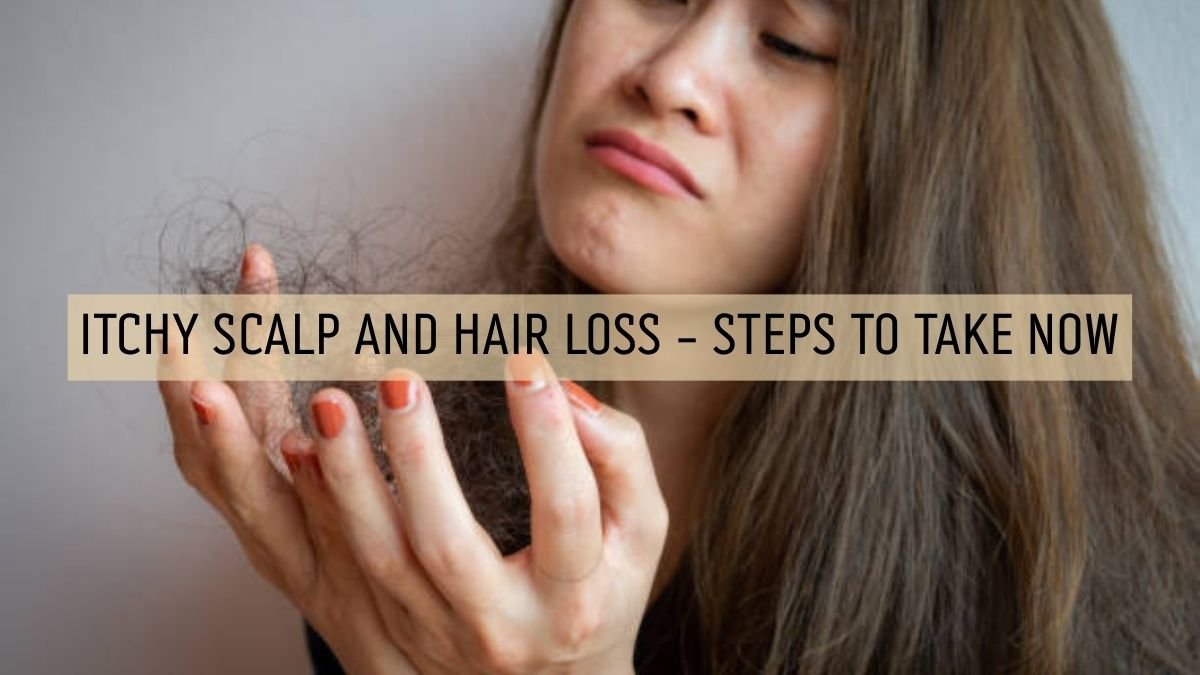
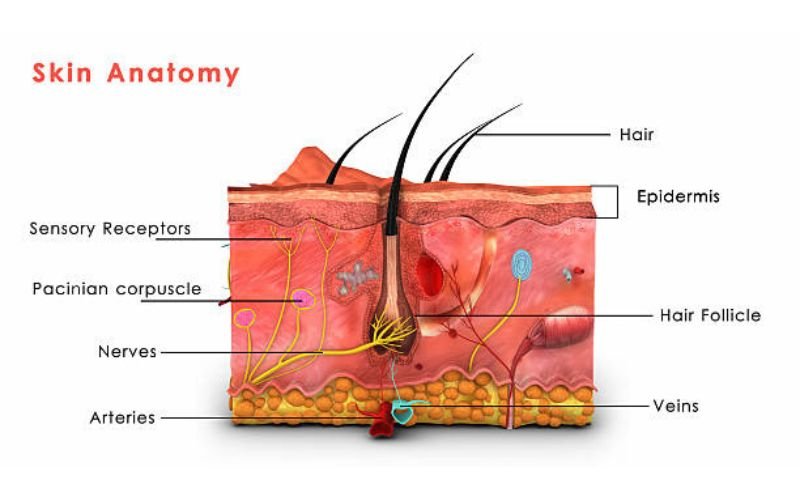
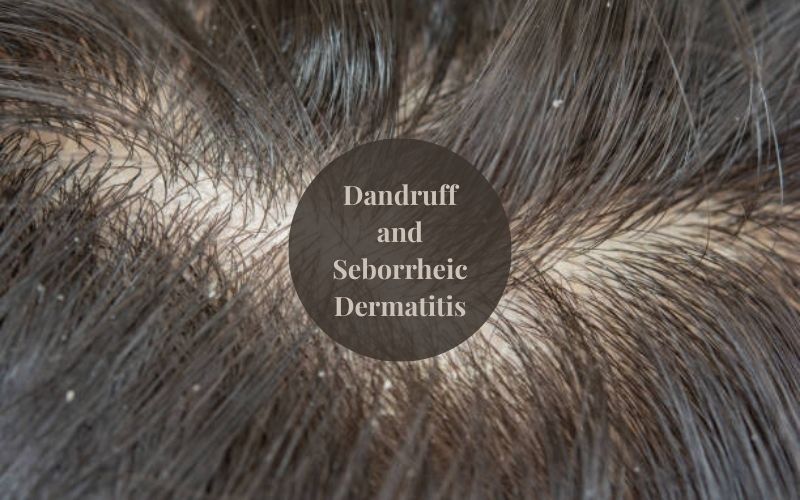
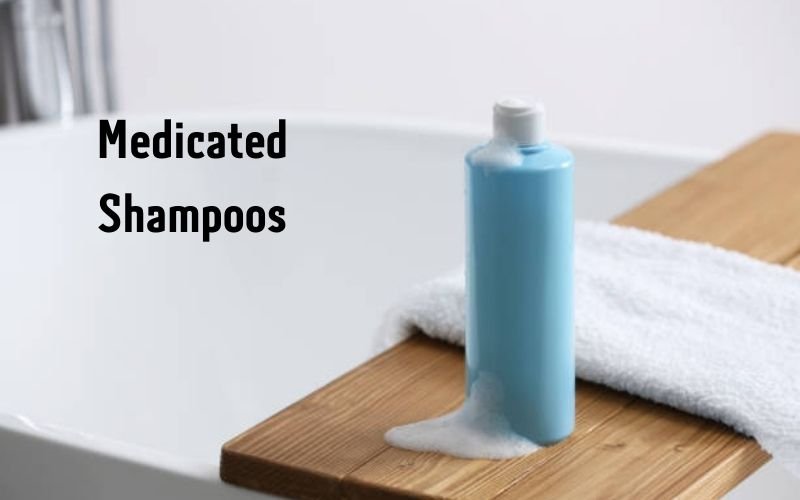

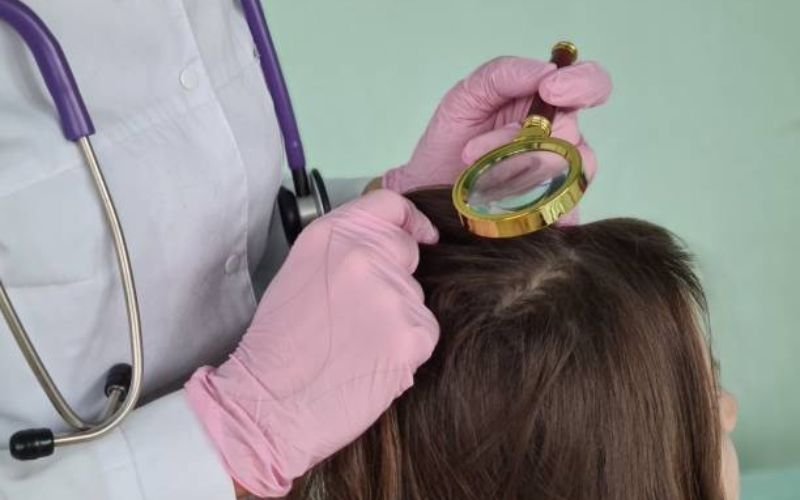


[…] Do you struggle with an itchy scalp and hair loss at the same time? This dual concern is more common than you might think, affecting individuals across various demographics. An itchy scalp can lead to discomfort, distraction, and even anxiety, while hair loss can impact self-esteem and confidence. Many people find themselves caught in this frustrating cycle, unsure of how to address both issues effectively. […]
[…] truth is, winter hair care requires a slightly different approach compared to other seasons. Understanding the most common […]
[…] Healthy hair starts with a healthy scalp. Keep the scalp clean and exfoliated, and massage it gently to stimulate blood circulation. This encourages growth and ensures the hair remains strong at the roots. […]
[…] For more details on the connection between scalp irritation and hair loss, this guide explains the causes and solutions clearly. 👉 itchy scalp and hair loss […]